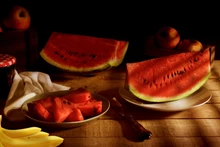
The Karnataka Health Department has taken a decisive step in the interest of public health by imposing a ban on the use of Rhodamine-B, a food coloring agent commonly used in cotton candy and 'Gobi Manchurian'. This measure follows mounting apprehensions regarding the additives present in these food items, particularly amidst criticisms regarding the preparation of 'Gobi Manchurian' under unsanitary conditions.
Ban on Rhodamine-B
Health Minister Dinesh Gundu Rao highlighted the severity of the issue, stating that strict actions will be taken against any individual or entity found to be utilizing Rhodamine-B in food products, by the Food Safety Act. The prohibition extends to the use of artificial colors in cotton candy, with the minister stressing the illegal nature of such additions to achieve the desired pink hue. Violation of this directive will lead to the revocation of licenses, as mandated by law.
While the ban on Rhodamine-B in food items is full-fledged, there’s a degree of leniency extended to enthusiasts of 'gobi manchurian'. Although the dish itself has not been banned outright, the use of artificial colors in its preparation has been strictly prohibited. Establishments found to be engaging in adulteration practices will face substantial fines of up to 10 lakhs, along with the possibility of imprisonment.
This decisive action by the Karnataka Health Department follows similar measures taken by the governments of Puducherry and Tamil Nadu, where bans on the production and sale of cotton candy containing Rhodamine-B have already been implemented. The detection of Rhodamine-B, a known carcinogen, in cotton candy has raised significant concerns, particularly regarding its consumption by children, who often regard it as a beloved treat.
Prioritizing Public Health & Safety in Food Regulation
In light of recent tests conducted at a government laboratory in Tamil Nadu confirming the presence of Rhodamine-B in cotton candy, the Karnataka government's proactive approach in banning the use of Rhodamine-B underscores the importance of prioritizing public health and safety in food regulation. The move reflects a concerted effort to address emerging health risks associated with food additives and to uphold stringent standards in food preparation and consumption. As concerns continue to grow over the presence of harmful substances in food products, such decisive actions serve to safeguard the well-being of consumers, particularly vulnerable groups such as children.
Food regulatory authorities across the country must remain vigilant and proactive in monitoring and enforcing food safety regulations. By taking swift and decisive measures to address emerging health risks, governments can instil confidence among consumers and ensure the integrity of the food supply chain.
Moving forward, it is essential for stakeholders, including government agencies, food producers, and consumers, to collaborate effectively in promoting a culture of food safety and transparency.
(Inputs Taken from @ANI)
-
What is Rhodamine B Used For?
Rhodamine B is an organic chloride salt and a xanthene dye that is widely used as a fluorochrome, a histological dye, and a fluorescent probe in several biotechnology applications including ELISA, fluorescence microscopy, and fluorescence correlation spectroscopy, and flow cytometry. Because it is soluble in water and highly fluorescent, it is often used as a tracer dye in surface, ground and wastewater to trace pollutants, study aeration and dispersion, measure time of travel, and understand the movement of water. Rhodamine B is often mixed with herbicides to indicate where they have been used.











